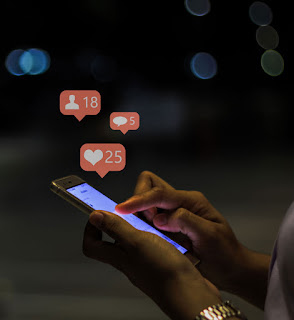Stop letting social media control your life

From Facebook and Twitter to Instagram and Snapchat, social media seems to have taken a firm grip on our lives, regardless of our age. Not only are these platforms a huge distraction in our day-to-day lives, but they can also play a negative role in our mental and physical wellbeing. In a survey published by Cureus in June 2020 , it was reported that “the prolonged use of social media platforms such as Facebook may be related to negative signs and symptoms of depression, anxiety, and stress”. While we indulge in hours of endless scrolling, trying to snap the perfect selfie, or striving to get as many likes and followers as possible, we are neglecting all of life’s good stuff that is so important to our health. But not only does social media steal our precious time, it has even more detrimental effects: We become less productive – It’s easy to lose track of time when scrolling through social media, which ultimately results in using our time less productively, whether at home...
